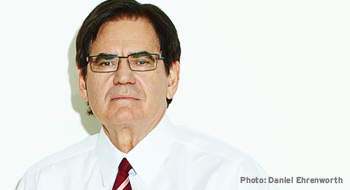
Benefits Canada sat down with OMERS president and CEO, Michael Nobrega, for his views on pension investing and asset allocation.
How much significance will foreign investment have in OMERS’ overall asset mix in the coming years?
We’re in the U.S. and the U.K., and we’ve bid on projects in other parts of what I call the developed world—the G7 countries plus Australia. We’re now doing above-the-ground due diligence on about 12 countries that we’d like to invest in. But if you go outside the country, you need to make sure you can hedge the currency properly, have credible partners in those places and can protect yourself against regulatory [regimes]. You want to do it carefully, and that takes some time. So, in the near future, I don’t see us falling below 40% to 45% [in Canadian investments].
When and where will OMERS open its next global office?
We’d like to look at Asia and Latin America. We invest in these markets now through public markets and funds. But we don’t like the idea of funds, because they have two fiduciary responsibilities [to fund holders and financial institution shareholders] and we’d like to have one [OMERS members.]
The next one to come will be in Asia, if [the board] allows us to do it, but we have to demonstrate the business case for it. And that won’t come before 2014 at the earliest. In the meantime, we’d look to partner with serious well-known, well-established partners out there.
What has OMERS learned in the process of bidding for private assets?
Do not expect to win every bid; otherwise, you are likely overpaying. Stick to your investment criteria, leverage and pricing. OMERS has stuck to its limits rather than overreaching for assets, which we believe could cause us problems later. While we have lost projects based on pricing, we have developed a lot of business intelligence just by doing the bids.
Neil Faba is associate editor of Benefits Canada. neil.faba@rci.rogers.com
Get a PDF of this article.
Related article:
